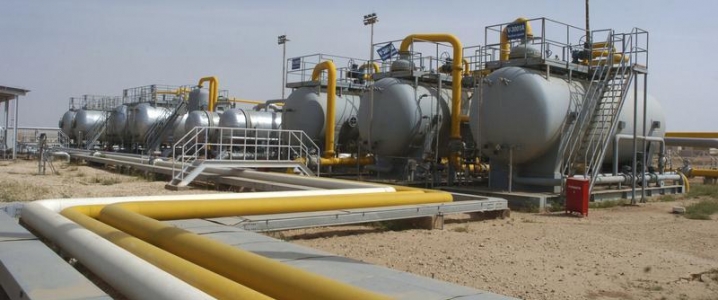Russia’s involvement in the Syrian civil war dramatically changed the balance of power. Before the intervention, government forces were quickly losing ground to numerous rebel groups. Moscow’s motives to send troops to Syria were primarily political as the country was at loggerheads with the West over its involvement in Ukraine. After several years of fighting, Assad’s forces have achieved a military victory with the backing of their Russian and Iranian allies. This provides a once in a lifetime opportunity for the Russian energy sector. Gazprom is one of the companies that has been positioning itself to reinvigorate the Syrian energy industry. The relative instability of the country would require military protection for normal companies. Gazprom, however, could soon become the world’s first militarized resource company.
Syria’s strategic value
Syria’s energy reserves are negligible to make a serious impact on the global energy market. The Arab country has oil reserves of approximately 2.5 billion barrels, only .2 percent of the global share, while its 8.9 billion cubic meters (bcm) of gas are insufficient to even meet domestic demand. Syria is not a crucial market for Russian energy companies in contrast to neighbor Iraq which possesses some of the world’s most impressive hydrocarbon reserves.
The Kremlin is not motivated by the value the Syria energy sector can generate but by the strategic location of the country. Before the civil war, Damascus was being courted by several countries to host major pipelines on its territory to transport natural gas to Europe. Iran, Iraq, and Syria were looking into the possibility to construct the so-called Friendship pipeline with a capacity of 40 bcm. Another project, the Arab Gas pipeline could have carried 10 bcm to Syria through Egypt and Jordan. The Kremlin, therefore, has recognized Syria’s value as an oil and gas transport hub rather than as a supplier. The participation of Russian companies in the reconstruction of Syria’s vital energy sector would ensure that anyone seeking to ship energy through the country will be forced to consider Russia’s interests.
Militarized Resource Companies
Military contractors are not new to energy companies who use them to protect their interests in unstable regions. Private military companies have been hired as recently as the war in Iraq to protect assets and supplement the military. Russian contractors have been the driving force of Moscow’s intervention in Syria to support Assad’s forces, guide Russian bombs to their targets, and avoid deploying Russian military ground forces. In 2007, however, the Russian parliament passed a law allowing energy giants Gazprom and Transneft to create their own militaries with weapons and technology provided by the Kremlin.
Related: Private Investment In Natural Resources Hits Record High
Gazprom’s involvement in Syria has been stimulated by Moscow due to several reasons. First, in order to support ally Syria in reconstructing its economy by reinvigorating the crucial energy sector. The revenue from oil and gas sales can be used for reconstruction purposes while at the same time providing cheap energy for the domestic market. Second, the monopolization of production, transportation, and refinery will give Moscow significant control over Syria’s economy. Third, the presence of Russian assets will justify a continued military presence in the Arab country for the foreseeable future.
Gazprom’s invitation
Gazprom’s close relations with the Kremlin and relative autonomy have already made it a quasi-state-within-a-state. In case the Russian energy giant does establish a significant presence in Syria, Gazprom’s corporate military would create another layer of complexity in a fragile country. The risk remains that the relative weakness of the Assad regime will be eroded by usurping the state’s power meaning that the energy assets will be protected and not the people of Syria.
The end of the civil war and relative stabilization of Syria is slowly opening the way for companies such as Gazprom. The Kremlin is not hesitant in using energy to its strategic benefit by pushing Gazprom in taking a stake in the country’s economic future. The Russian involvement in the Arab country has reached its military peak with the defeat of nearly all major rebel groups. During the next stage, economic factors are the driving force to maintain a semi-permanent presence. Military assets provide Russian energy companies with the tools to operate independently from the security forces. It is yet unclear whether the Syrian government will be able to control the Russian companies operating in the country or whether these firms will become a state-within-a-state.
By Vanand Meliksetian for Oilprice.com
More Top Reads From Oilprice.com:
- Warning Signs Flash For U.S. Shale
- Aramco Ready To Pour Billions In U.S. Natural Gas
- What’s Holding Back The Global Energy Transition


















